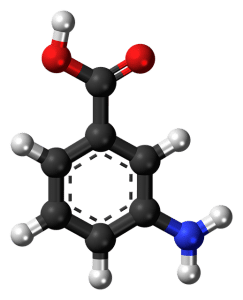Pantothenate Kinase-associated Neurodegeneration (PKAN)
What is pantothenate kinase-associated neurodegeneration (PKAN)?
Pantothenate kinase-associated neurodegeneration (PKAN), formerly called Hallervorden-Spatz syndrome, is a rare neurological movement disorder characterized by the progressive degeneration of specific areas in the central nervous system.
PKAN is the most common type of neurodegeneration with brain iron accumulation, a group of disorders marked by abnormal involuntary movements and changes in muscle tone.
PKAN is characterized by progressive difficulty with movement, typically beginning in childhood. Movement abnormalities include involuntary muscle spasms, rigidity, and difficulty walking.
What are the symptoms of pantothenate kinase-associated neurodegeneration (PKAN)?
- Dystonia
- Dysphagia and dysarthria
- Muscular rigidity
- Tremors
- Writhing movements
- Dementia
- Speech problems
What causes pantothenate kinase-associated neurodegeneration (PKAN)?
PKAN is an autosomal recessive condition caused by mutations in the PANK2 gene, located on chromosome 20. Individuals with PKAN have an abnormal accumulation of iron in certain areas of the brain, This is especially visible in regions of the basal ganglia called the globus pallidus and the substantia nigra.
The exact relationship between iron accumulation and the symptoms of PKAN is not fully known.
How is pantothenate kinase-associated neurodegeneration (PKAN) diagnosed?
PKAN is often diagnosed after clinical evaluation, detailed patient history, and identification of characteristic symptoms. A diagnosis may be confirmed through:
- Imaging tests
- Molecular genetic testing
The common feature among all individuals with PKAN is iron accumulation in the brain, in a pattern called the ‘eye of the tiger’ sign, which is a dark area with a bright spot in the center.
What treatments are available for pantothenate kinase-associated neurodegeneration (PKAN)?
There is no specific treatment for individuals with PKAN. Rather, treatment is directed towards managing specific symptoms. These treatments include:
- Baclofen, Trihexyphenidyl, Clonazepam, Pallidotomy, and Thalamotomy to manage distonia
- Iron chelationand deferiprone to reduce iron levels
- Dietary supplements, such as Pantothenate
Where can I find out more about pantothenate kinase-associated neurodegeneration (PKAN)?
Pantothenate Kinase-associated Neurodegeneration (PKAN) Articles



Pantethine Studied for Efficacy in Treating Pantothenate Kinase-Associated Neurodegeneration in Children

The Results of This Phase 3 PKAN Clinical Trial are a Major Letdown

Researchers Discover Method for Slowing The Progression of PKAN

BridgeBio Receives Almost 300 Million for Continued Rare Disease Research





